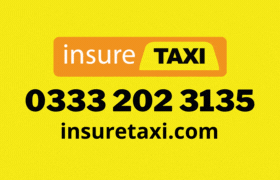THE TASK AND FINISH GROUP'S RECOMMENDATIONS:
GOVERNMENT RESPONSE

In 2017 the (then) Minister for Transport John Hayes MP announced in the Commons that he was to establish a Task and Finish Group (TFG) to examine taxi and private hire licensing, with a view to highlighting the current dilemmas faced by licence holders and recommending possible legislative reform. Read more...
The Group was set up with Professor Mohammed Abdel-Haq as Chair; coming from the field of merchant banking, he was chosen as a totally independent Chair without any connections to any one facet of the industry. The remaining members of the group comprised, two MPs; representatives from the GMB; the Local Government Association; Transport for London; trade associations – the Licensed Taxi Drivers’ Association, and the Licensed Private Hire Car Association; the Suzy Lamplugh Trust; and the Competition and Markets Authority and myself Donna Short, Director of the National Private Hire and Taxi Association (NPHTA) and editor of PHTM.
The Chair submitted his report summarising and covering the deliberations and negotiations of the group, which took place over a series of ten meetings. The report was submitted to Government in July 2018 and published on 28 September 2018. Taxi and PHV licensing was devolved to the Welsh Government in April 2018 but the Statutory Guidance will continue to apply until legislation governing this is changed so as to break the link with the English taxi and PHV legislation.
The Government response was issued by the current Parliamentary Under Secretary of State for Transport, Nusrat Ghani.
Some recommendations have been endorsed and will be implemented; some are already in force; some will require new legislation, and some have been rejected.
At the same time the Government has issued a draft Statutory Guidance document for licensing authorities; this document is out to consultation for ten weeks. The full Government response to the Task and Finish report and the draft Statutory Guidance document are available to read in full at the bottom of this page.
The draft Statutory Guidance document is now out to consultation; the deadline date for responses is 22 April 2019. The scope of the guidance is defined in legislation: ie. “The Secretary of State may issue guidance to public authorities as to how their licensing functions under taxi and private hire vehicle legislation may be exercised so as to protect children, and vulnerable individuals who are 18 or over, from harm.” Because the two documents were issued simultaneously, the reaction we’ve received since the documents were published indicate a high degree of confusion – understandably – as to exactly which of the documents are out to consultation. Issues such as cross-border working, drivers’ working conditions, private hire numbers which are responded to by Government from the TFG report cannot be included in the statutory guidance as they do not relate to safeguarding.
PHTM
approached the Department for Transport for clarification on this point;
Click here to read their response
“The Government’s response to the report of the Taxi and Private Hire Licensing Task and Finish Group sets out which of the recommendations the Department proposes to take forward. Many of the short-term recommendations made by the Chair of the Task and Finish Group in his report are for licensing authorities to make full use of their extensive existing powers and these are a matter for licensing authorities to consider. “The timeframe for taking forward the recommendations that the Government has committed to depends on whether legislation is required. Work has already started to take forward some of the recommendations, for example the Department launched, on 12 February, its consultation on draft statutory guidance to be issued to licensing authorities on the use of their powers to protect children and vulnerable adults from harm which will run until 22 April. Those reforms that require legislative change, for example national minimum standards, will be subject to consultation in due course.”
As we understand it, the above means that the draft Statutory Guidance is out to consultation as a matter of protocol. However, the Government response to the TFG report is a “done deal”; that is to say, the Government has responded to each point in the report, and that response stands. Some of these points require further review and negotiation but that process is further down the line for those recommendations that require new legislation - at which point they will to go out to consultation “in due course”.
For simplicity we have listed the 34 recommendations of the Task and Finish Group and the Government’s position on them in specific groupings, best categorised by the following symbols. We accept that they are not in numerical order but instead in groupings of different degrees of acceptance and position.
 Government agrees/implenting already in existence
Government agrees/implenting already in existence Government reviewing
Government reviewing Government to seek new legislation
Government to seek new legislation Government rejects
Government rejects Government consulting on draft Statuatory Guidance
Government consulting on draft Statuatory Guidance TFG Recommendation 1
TFG Recommendation 1
Taxi and PHV legislation should be urgently revised to provide a safe, clear and up to date structure that can effectively regulate the two-tier trade as it is now. “In the short term this does not include a full replacement of the law which regulates taxi and private hire. It will, however, be important to fully consider this as part of work on the Future of Mobility, which will consider how Government can support new technology and innovation through regulatory frameworks which can evolve with time.”
PHTM : “Great - let’s get on with it!”
 TFG Recommendation 2
TFG Recommendation 2
Government should urgently update its Best Practice Guidance. To achieve greater consistency in advance of national minimum standards, (see recommendaton 2) licensing authorities should only deviate from the recommendations in exceptional circumstances. In this event licensing authorities should publish the rationale for this decision. Where aspects of licensing are not covered by guidance nor national minimum standards, or where there is a desire to go above and beyond the national minimum standard, licensing authorities should aspire to collaborate with adjoining areas to reduce variations in driver, vehicle and operator requirements. Such action is particularly, but not exclusively, important within city regions.
PHTM : “Yes Please!!”
 TFG Recommendation 4
TFG Recommendation 4
In the short-term, large urban areas, notably those that have metro mayors, should emulate the model of licensing which currently exists in London and be combined into one licensing area. In non-metropolitan areas collaboration and joint working between smaller authorities should become the norm. Government having encouraged such joint working to build capacity and effectiveness, working with the Local Government Association, should review progress in non-metropolitan areas over the next three years.
 TFG Recommendation 9
TFG Recommendation 9
All licensing authorities should use their existing powers to make it a condition of licensing that drivers cooperate with requests from authorised compliance officers in other areas. Where a driver fails to comply with this requirement enforcement action should be taken as if the driver has failed to comply with the same request from an officer of the issuing authority.
PHTM : Many licence holders view this as yet another power to be wielded by licensing authorities.
 TFG Recommendation 12
TFG Recommendation 12
Licensing authorities should ensure that their licensing administration and enforcement functions are adequately resourced, setting fees at an appropriate level to enable this.
PHTM : Government is in favour, tempering their comment with the “undertaking of a review of [the local authority’s] licensing fees to recover the permissible costs and no more of providing this.”
 TFG Recommendation 13
TFG Recommendation 13
Legislation should be introduced by the Government as a matter of urgency to enable Transport for London to regulate the operation of pedicabs in London. Agreement from Government following unanimous agreement of TFG.
 TFG Recommendation 15
TFG Recommendation 15
All ridesharing services should explicitly gain the informed consent of passengers at the time of the booking and commencement of the journey.
PHTM : ...Frankly, we’re somewhat surprised that this topic isn’t mentioned within the draft Statutory Guidance, as it is conceivable that a child or vulnerable adult might find themselves feeling (or being) at risk from sharing a journey with strangers.
 TFG Recommendation 31
TFG Recommendation 31
Licensing authorities which have not already done so should set up lists of Wheelchair Accessible Vehicles (WAVs) in compliance with section 167 of the Equality Act 2010, to ensure that passengers receive the protections which this provides.
PHTM : The Equality Act should have read “must”, not “may” maintain a designated list... Even this point says “should” instead of “must”. A licensing authority without such a designated list cannot enforce against licence holders who abuse the regulations under s.167 but the legislation is already existing and in force.
 TFG Recommendation 32
TFG Recommendation 32
Licensing authorities should use their existing enforcement powers to take strong action where disability access refusals are reported, to deter future cases. They should also ensure their systems and processes make it as easy as possible for passengers to report disability access refusals.
PHTM : A keen point this Government is anxious to resolve; we have said many times that a paltry fine will not deter a driver from refusing an assistance dog in future. Only revocation of the licence will work.
 TFG Recommendation 7
TFG Recommendation 7
Central Government and licensing authorities should ‘level the playing field’ by mitigating additional costs faced by the trade where a wider social benefit is provided – for example, where a WAV and/or ZEV is made available.
PHTM : Licence holders are keeping an eye on this one – especially in light of pending Clean Air policy decisions potentially governing the purchase of future vehicles.
 TFG Recommendation 11
TFG Recommendation 11
Government should legislate that all taxi and PHV journeys should start and/or end within the area for which the driver, vehicle and operator (PHVs and taxis – see recommendation 6) are licensed. Appropriate measures should be in place to allow specialist services such as chauffeur and disability transport services to continue to operate cross border. Operators should not be restricted from applying for and holding licences with multiple authorities, subject to them meeting both national standards and any additional requirements imposed by the relevant licensing authority.
PHTM : Recommendation 11 is the real ‘zinger’, the one that has caused by far the most controversy – and of debate and discussion amongst the Task and Finish Group. Government “agrees with the principle of this recommendation (with a view to legislation) and will further condiser how it might best work in detail”. That is not to say it’s going to happen; Government fully recognises the vast range of difficulties involved in mandating such a restriction, and the overwhelming effects it would have on thousands of businesses. Size of area, flexibilities or exemptions, business models, types of transport or passenger, additional pollution from empty vehicles... all these elements would have to be factored into the equation.
 TFG Recommendation 33
TFG Recommendation 33
The low pay and exploitation of some, but not all drivers, is a source of concern. Licensing authorities should take into account any evidence of a person or business flouting employment law, and with it the integrity of the National Living Wage, as part of their test of whether that person or business is fit and proper to be a PHV operator.
PHTM : A great deal of time was also spent within the TFG discussing drivers’ rights and employment status; the Government acknowledges that “the group did not have the expertise, nor was it within its scope, to determine the employment status of drivers. This is also true of licensing authorities; only the courts can make rulings on this. “However, the Government agrees that the decisions of tribunals, and whether [operators are complying with those decisions], should reasonably be considered by a licensing authority as part of the fit and proper test for a PHV operator.” As PHTM readers will know, several of these tribunals are currently taking place; it really is a case of ‘watch this space’.
 TFG Recommendation 34
TFG Recommendation 34
Government should urgently review the evidence and case for restricting the number of hours that taxi and PHV drivers can drive, on the same safety grounds that restrict hours for bus and lorry driver.
PHTM : Again, this was a subject of much controversy within the TFG, and one for which the Government fully acknowledges the safety issues at stake when drivers are doing day after night of 18-hour shifts and falling asleep at the wheel. However, they also recognise that it is difficult to legislate against this dilemma, stating that “there may be monitoring and enforcement problems to enforcing such limits.” You’re not kidding! Apart from ripping out thousands of taximeters and fitting tachographs (as for bus, coach and lorries), self- regulating of drivers’ hours is a non-starter, from the reaction we’ve received.
 TFG Recommendation 2
TFG Recommendation 2
Government should legislate for national minimum standards for taxi and PHV licensing - for drivers, vehicles and operators (see recommendation 6). The national minimum standards that relate to the personal safety of passengers must be set at a level to ensure a high minimum safety standard across every authority in England. Government must convene a panel of regulators, passenger safety groups and operator representatives to determine the national minimum safety standards. Licensing authorities should, however, be able to set additional higher standards in safety and all other aspects depending on the requirements of the local areas if they wish to do so.
PHTM : Good. But it is unfortunate that it has to wait for new legislation.
 TFG Recommendation 10
TFG Recommendation 10
Legislation should be brought forward to enable licensing authorities to carry out enforcement and compliance checks and take appropriate action against any taxi or PHV in their area that is in breach of national minimum standards (recommendation 2) or the requirement that all taxi and PHV journeys should start and/or end within the area that issued the relevant licences (recommendation 11).
PHTM : This is more likely to happen under recommendation 2(?), but again must await new legislation.
 TFG Recommendation 14
TFG Recommendation 14
The Department for Transport and Transport for London should work together to enable the issue of Fixed Penalty Notices (FPNs) for both minor taxi and PHV compliance failings. The DfT should introduce legislation to provide all licensing authorities with the same powers. Government is to “engage with licensing authorities to establish if there is significant demand for a power to issue FPNs outside London to assist in the enforcement of national minimum standards.”
PHTM : Loosely translated, we’ll have to wait for new legislation... to bring in those national minimum standards. NPHTA has always favoured FPNs as opposed to more stringent punitive measures for minor misdemeanours.
 TFG Recommendation 19
TFG Recommendation 19
National standards must set requirements to assist the public in distinguishing between taxis, PHVs and unlicensed vehicles. These should require drivers to have on display (e.g. a clearly visible badge or arm-band providing) relevant details to assist the passengers in identifying that they are appropriately licensed e.g. photograph of the driver and licence type i.e. immediate hire or pre-booked only. All PHVs must be required to provide information to passengers including driver photo ID and the vehicle licence number, in advance of a journey. This would enable all passengers to share information with others in advance of their journey. For passengers who cannot receive the relevant information via digital means this information should be available through other means before passengers get into the vehicle.
PHTM : There was some strong reaction to the arm band concept(!) during the TFG; however, the Government is all in favour of these types of parameters if they form part of the consideration of national standards. There’s time yet, as this would require legislation to implement national standards.
 TFG Recommendation 24
TFG Recommendation 24
Government must establish a mandatory national database of all licensed taxi and PHV drivers, vehicles and operators, to support stronger enforcement.
PHTM : Virtually everybody – Government being top of the list – is in favour of such a database. Big Brother? Maybe – but very necessary for further protection of both passengers and drivers.
 TFG Recommendation 5
TFG Recommendation 5
As the law stands, plying for hire is difficult to prove and requires significant enforcement resources. Technological advancement has blurred the distinction between the two trades. Government should introduce a statutory definition of both plying for hire and pre-booked in order to maintain the two-tier system. This definition should include reviewing the use of technology and vehicle ‘clustering’ as well as ensuring taxis retain the sole right to be hailed on streets or at ranks. Government should convene a panel of regulatory experts to explore and draft the definition.
PHTM : Government rejected this recommendation, on the basis that if the Law Commission couldn’t come up with such definitions, they see no way any new panel would reach a different conclusion.
 TFG Recommendation 6
TFG Recommendation 6
Government should require companies that act as intermediaries between passengers and taxi drivers to meet the same licensing requirements and obligations as PHV operators, as this may provide additional safety for passengers (e.g. though greater traceability).
PHTM : Government rejected this one, on the basis that “the Law Commission also considered this and concluded that intermediaries working solely with licensed taxis should not require licensing.”
 TFG Recommendation 8
TFG Recommendation 8
Government should legislate to allow local licensing authorities, where a need is proven through a public interest test, to set a cap on the number of taxi and private hire vehicles they license. This can help authorities to solve challenges around congestion, air quality and parking. It can also ensure appropriate provision of taxi and private hire services for passengers, while maintaining drivers’ working conditions.
PHTM : This recommendation of limiting the number of private hire vehicle licences issued by individual licensing authorities, has been rejected by Government on the basis of the potential impact on public safety, and the possible stifling of competition. This caused a great deal of controversy during the TFG meetings; however we are in favour of the Government’s decision for the same reasons and agreed that capping numbers at this time would be “closing the stable door after the horse has bolted”.
 TFG Recommendation 18
TFG Recommendation 18
As Government and local authorities would benefit from a reduction in crime in licensed vehicles, both should consider ways in which the costs to small businesses of installing CCTV can be mitigated.
PHTM : Government rejected any offer of national subsidies for CCTV equipment, on the basis that it costs the same as “a new set of tyres”. However, that doesn’t have to prevent licensing authorities from considering ways of sourcing local subsidies or other funding boosts.
 TFG Recommendation 30
TFG Recommendation 30
Licensing authorities that have low levels of Wheelchair Accessible Vehicles (WAVs) in their taxi and PHV fleet should ascertain if there is unmet demand for these vehicles. In areas with unmet demand licensing authorities should consider how existing powers could be used to address this, including making it mandatory to have a minimum number of WAVs in their fleet. As a matter of urgency the Government’s Best Practice Guidance should be revised to make appropriate recommendations to support this objective.
PHTM : Great emphasis has been placed on disability issues: disablility awareness training; concessions to WAV owners to mitigate their expenses; stronger action against those who commit access refusals; the setting up of “designated lists” of WAVs under s.167 Equality Act 2010. The Government responded by acknowledging the practical difficulties licensing authorities would encounter by setting a specific number, or percentage, of WAVs amongst both their taxi and PHV fleet. However, Government also “acknowledged that an entirely WAV fleet may not be beneficial to disabled passengers, most of whom are not wheelchair users.” (Are you listening, Cheltenham??) So the mandating of an all-WAV fleet is deemed to be overkill and would never be sanctioned nationally, nor is it recommended locally. PHTM feels strongly that the requirements of the wheelchair-bound disabled passengers in the individual marketplace should determine the number of WAVs available.
 TFG Recommendation 16
TFG Recommendation 16
The DfT must as a matter of urgency press ahead with consultation on a draft of its Statutory Guidance to local licensing authorities. The guidance must be explicit in its expectations of what licensing authorities should be doing to safeguard vulnerable passengers. The effectiveness of the guidance must be monitored in advance of legislation on national minimum standards.
PHTM : This is what the consultation is all about; go online (www.gov.uk/government/consultations/taxi-and-private-hire- vehicle-licensing-protecting-users) to respond before 22 April.
 TFG Recommendation 17
TFG Recommendation 17
In the interests of passenger safety, particularly in the light of events in towns and cities such as Rochdale, Oxford, Newcastle and Rotherham, all licensed vehicles must be fitted with CCTV (visual and audio) subject to strict data protection measures. Licensing authorities must use their existing power to mandate this ahead of the requirement’s inclusion in national minimum standards. To support greater consistency in licensing, potentially reduce costs and assist greater out of area compliance, the Government must set out in guidance the standards and specifications of CCTV systems for use in taxis and PHVs. These must then be introduced on a mandatory basis as part of national minimum standards.
PHTM : The Government’s response to this recommendation has been widely misinterpreted, incorrectly reported and totally exploited in media headlines. Yes, the Government is in favour of CCTV in licensed taxis and PHVs, for the same reasons we are: the safety of the people inside the vehicle, both the driver and passengers. That is not to say that headlines proclaiming “Mandatory CCTV in all taxis and minicabs” mean that it is a guaranteed cert; far from it. The draft SG document covers all the angles of the Government’s position on this issue, including their acknowledgment that “imposition of a blanket requirement to attach CCTV as a condition to a licence is likely to give rise to concerns about the proportionality of such an approach and will therefore require an appropriately strong justification and must be kept under regular review.” As far as PHTM is concerned, it’s a no-brainer; you’ve got to have CCTV – for the safety of both the driver and the passenger(s). We totally accept that there are chauffeur/executive firms – and indeed vehicles utilised by other transport providers - that are used by passengers who require total discretion and privacy. The Statutory Guidance acknowledges this fact and discusses the implications of selective (as opposed to 24/7) visual and sound recordings. Weighing up priorities, you have to consider which is more important to you and your passengers: privacy, or safety.
 TFG Recommendation 20
TFG Recommendation 20
All drivers must be subject to enhanced DBS and barred lists checks. Licensing authorities should use their existing power to mandate this ahead of inclusion as part of national minimum standards. All licensing authorities must require drivers to subscribe to the DBS update service and DBS checks should be carried out at a minimum of every six months. Licensing authorities must use their existing power to mandate this ahead of inclusion as part of national standards.
PHTM : Where have the national media been???!! Licence holders from all over the country have contacted us to say, “We’ve had to have DBS enhanced checks ever since I first started... what is this all about?!” Unfortunately so many press and broadcast media have got the wrong end of the stick here, headlining “Taxi and private hire drivers to face enhanced criminal record checks”. They don’t know that our trade has been subject to such checks for over 17 years. The misunderstanding relates to the barred lists. These lists document people whose past criminal activity includes sexual acts against children and/or vulnerable adults, thereby barring them from undertaking school or Social Services contracts.
 TFG Recommendation 21
TFG Recommendation 21
Government must issue guidance, as a matter of urgency, that clearly specifies convictions that it considers should be grounds for refusal or revocation of driver licences and the period for which these exclusions should apply. Licensing authorities must align their existing policies to this ahead of inclusion in national minimum standards.
PHTM : We’ve been waiting for such guidance ever since the Home Office published their renowned Annex D in 1992.
 TFG Recommendation 22
TFG Recommendation 22
The Quality Assurance Framework and Common Law Police Disclosure Provisions must be reviewed to ensure as much relevant information of behaviours and crimes by taxi and PHV drivers (and applicants) is disclosed and to ensure licensing authorities are informed immediately of any relevant incidents.
PHTM : This is all about proper links between police forces and licensing authorities in providing a full profile of an applicant for a licence or renewal. Currently the disclosure by the local police force of “relevant information of behaviours and crimes” (known as Stage 4) is the biggest hold-up of the return of a DBS enhanced check; it would be amazing, and career-saving for many applicants, if this process could be speeded up.
 TFG Recommendation 23
TFG Recommendation 23
All licensing authorities must use the National Anti-Fraud Network (NAFN) register of drivers who have been refused or had revoked taxi or PHV driver licence. All refusals and revocations must be recorded, and the register checked for all licence applications and renewals. Licensing authorities must retain the reasons for any refusal, suspension or revocation and provide those to other authorities as appropriate. The Government must, as a matter of urgency, bring forward legislation to mandate this alongside a national licensing database. PHTM: This register is already in existence; it was established last year via the Local Government Association and is known as NR3. However, it is currently adoptive/voluntary and not all licensing authorities have opted in; Government is in full support of mandating the register, and also in support of Cambridge MP Daniel Zeichner’s Private Member’s Bill (yes please! It was talked out; can it be resurrected?) which would mandate this recommendation.
 TFG Recommendation 25
TFG Recommendation 25
Licensing authorities must use their existing powers to require all drivers to undertake safeguarding/child sexual abuse and exploitation awareness training. This should include the positive role that taxi/PHV drivers can play in spotting and reporting signs of abuse and neglect of vulnerable passengers. This requirement must form part of future national minimum standards.
PHTM : The Statutory Guidance covers in great detail the necessity for this training; we fully support any efforts to extend such programmes.
 TFG Recommendation 26
TFG Recommendation 26
All individuals involved in the licensing decision making process (officials and councillors) must undertake appropriate training. The content of the training must form part of national minimum standards.
PHTM : The trouble is that Government intends this requirement to be included in national minimum standards, ensuring a time lag.
 TFG Recommendation 27
TFG Recommendation 27
Government must review the assessment process of passenger carrying vehicle (PCV) licensed drivers and/or consider the appropriate licensing boundary between taxis/PHVs and public service vehicles (PSVs). The Government response says: “In the longer term, it will be important to consider as part of the Future of Mobility Grand Challenge what changing technologies and ways of working might mean for the differing regulatory frameworks applied to road transport in the UK, including whether the number of seats in a vehicle remains an appropriate way of deciding how to regulate.”
PHTM : This is one loophole that definitely needs closing. What needs discussing is not whether a PHV operator uses a (potentially dodgy) PCV driver on its circuit, but rather why/how PCV drivers are not DBS checked as are our drivers.
 TFG Recommendation 28
TFG Recommendation 28
Licensing authorities must require that all drivers are able to communicate in English orally and in writing to a standard that is required to fulfil their duties, including in an emergency and other challenging situations.
PHTM : This recommendation is further strengthened within the draft SG, in particular the reference to the need to “... provide a legibly written receipt on request”. However, it clearly does NOT mean that drivers, as part of their written English assessment, will have to compose an essay about a snowstorm... (Are you listening, TfL?) PHTM is in total agreement with the Government on this point; the understanding of spoken English is crucial, but the extent of written English to be tested should be reasonable.
 TFG Recommendation 29
TFG Recommendation 29
All licensing authorities should use their existing powers to require that taxi and PHV drivers undergo disability awareness and equality training. This should ultimately be mandated as part of national minimum standards.
PHTM : This specific disability training has been advocated for some five years now; it is regularly mentioned in Parliament, and the current Parliamentary Under Secretary of State for Transport, Nusrat Ghani, is particularly keen to ensure that such training becomes more widespread under existing powers. We totally agree: the most repeated complaint received by licensing authorities from disabled passengers (apart from access refusal, which can be dealt with severely) is the lack of training on the part of the driver – usually in districts where there is no such training in place.
POINTS FOR CONSULTATION UNDER THE DRAFT STATUTORY GUIDANCE
To reiterate, this is where you need to get your pen and/or keyboard out and respond to the Government yourself. Again, may we stress here that such consultation is NOT in respect of the Government’s response to the TFG in its entirety; the points under consultation fall within the Statutory Guidance for “...[local authorities] and ...persons who appear to represent those whose livelihood is affected...”
Recommendation 16:
The urgency to press ahead with the consultation on the draft Statutory Guidance itself. Closing date 22 April 2019.
Recommendation 17:
The mandating of CCTV in all licensed taxis/PHVs. Detailed information within the draft Statutory Guidance document.
Recommendation 20:
All drivers must be subject to enhanced DBS and barred list checks.
Recommendation 21:
Government must issue guidance on convictions to be grounds for refusal or revocation.
Recommendation 22:
Review of Common Law Police Disclosure Provisions to ensure as much relevant information is disclosed and licensing authorities are informed of any relevant incidents.
Recommendation 23:
Mandatory use by all local authorities of the National Anti-Fraud Network (‘NR3’) register of drivers with refusal or revocation, with a view to universal access via a national licensing database.
Recommendation 25:
All drivers to undertake safeguarding/CSAE awareness training.
Recommendation 26:
Council officials and councillors must undertake appropriate industry training; the content must form part of national minimum standards.
Recommendation 27:
Review of the use of passenger carrying vehicle (PCV) licensed drivers on private hire operator circuits.
Recommendation 28:
All drivers to be able to communicate in English orally and in writing to a standard that is required to fulfil their duties.
Recommendation 29:
All taxi/PHV drivers to undergo disability awareness and equality training.
In conclusion, bear in mind that you’ve read all about it in PHTM; we’ve given you THE FACTS, NOT THE FICTION; and as always, we strongly request that you give us your feedback on any aspect of this Government response to the Task and Finish report – or any other trade developments – so that we may advise the powers that be of the views of our industry. Send your responses to info@phtm.co.uk
A full copy of the Government response, along with draft Statutory Guidance consultation document, is available in PDF below:


















